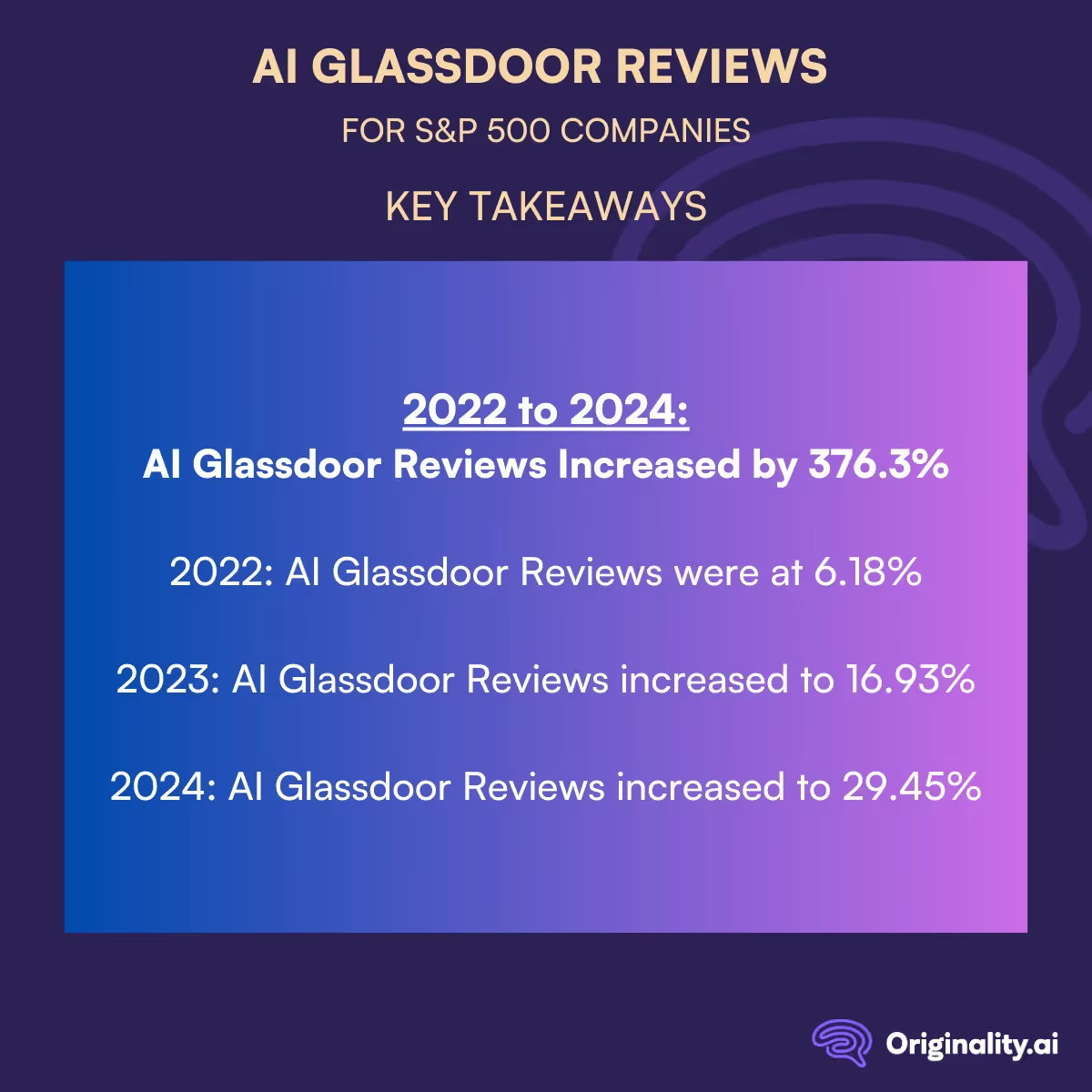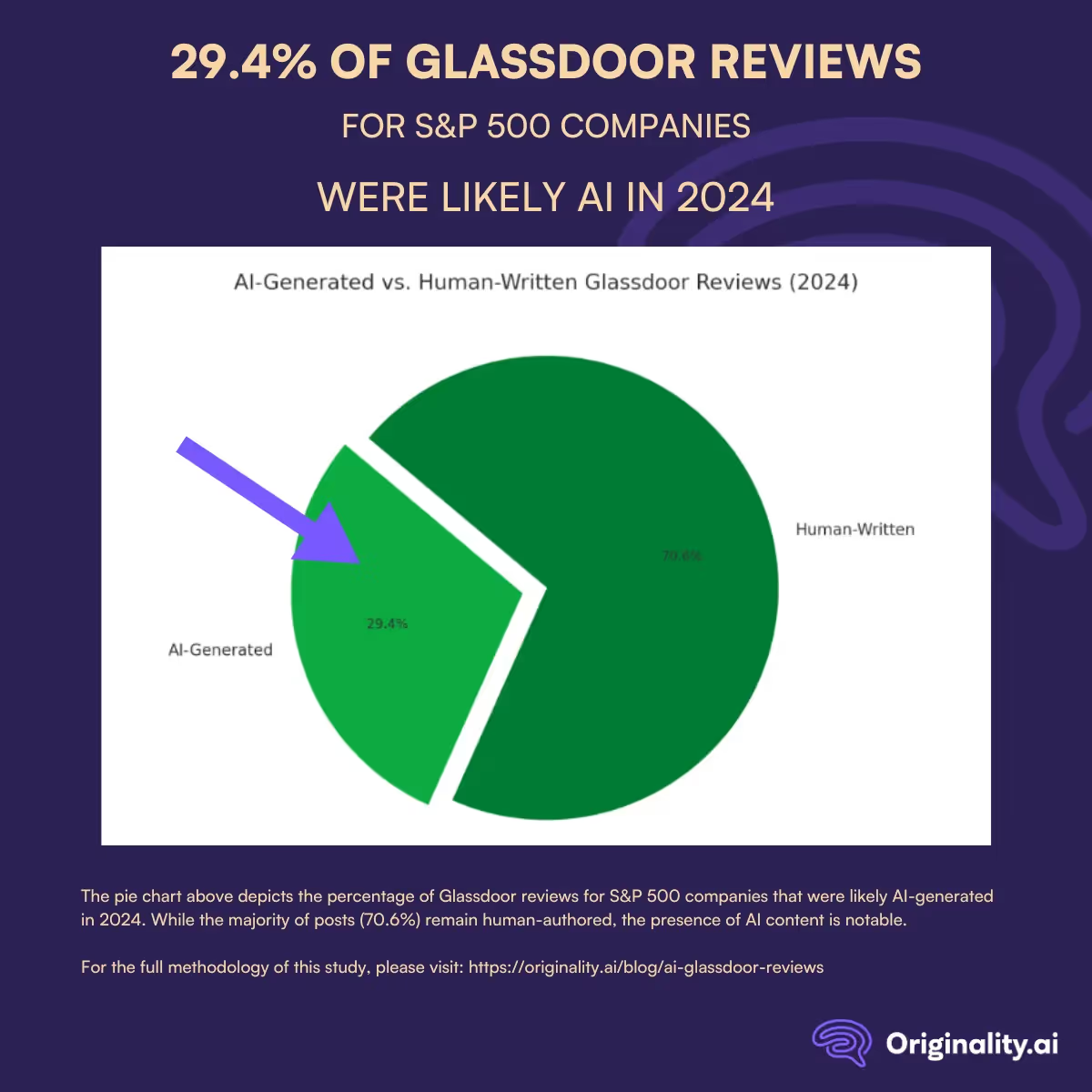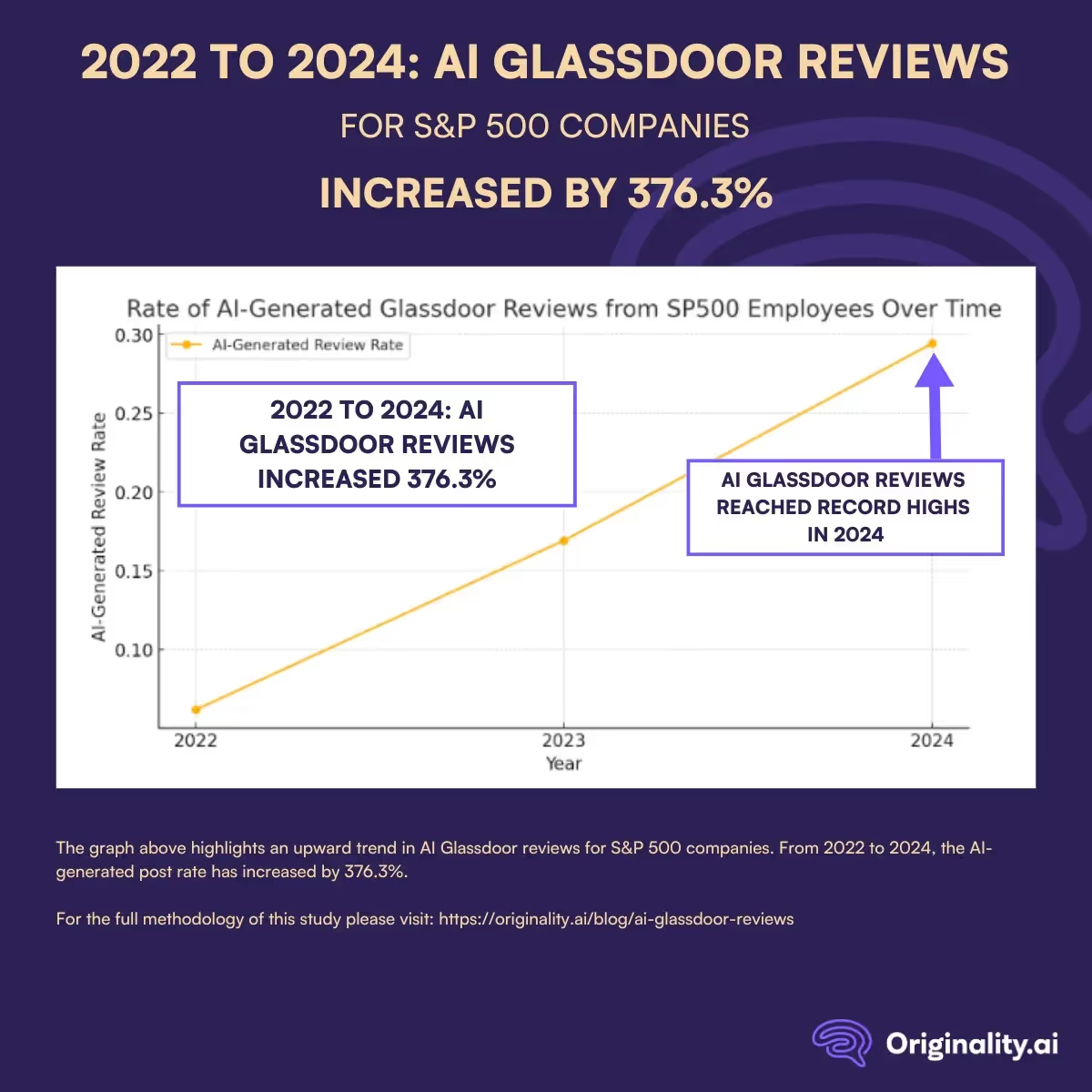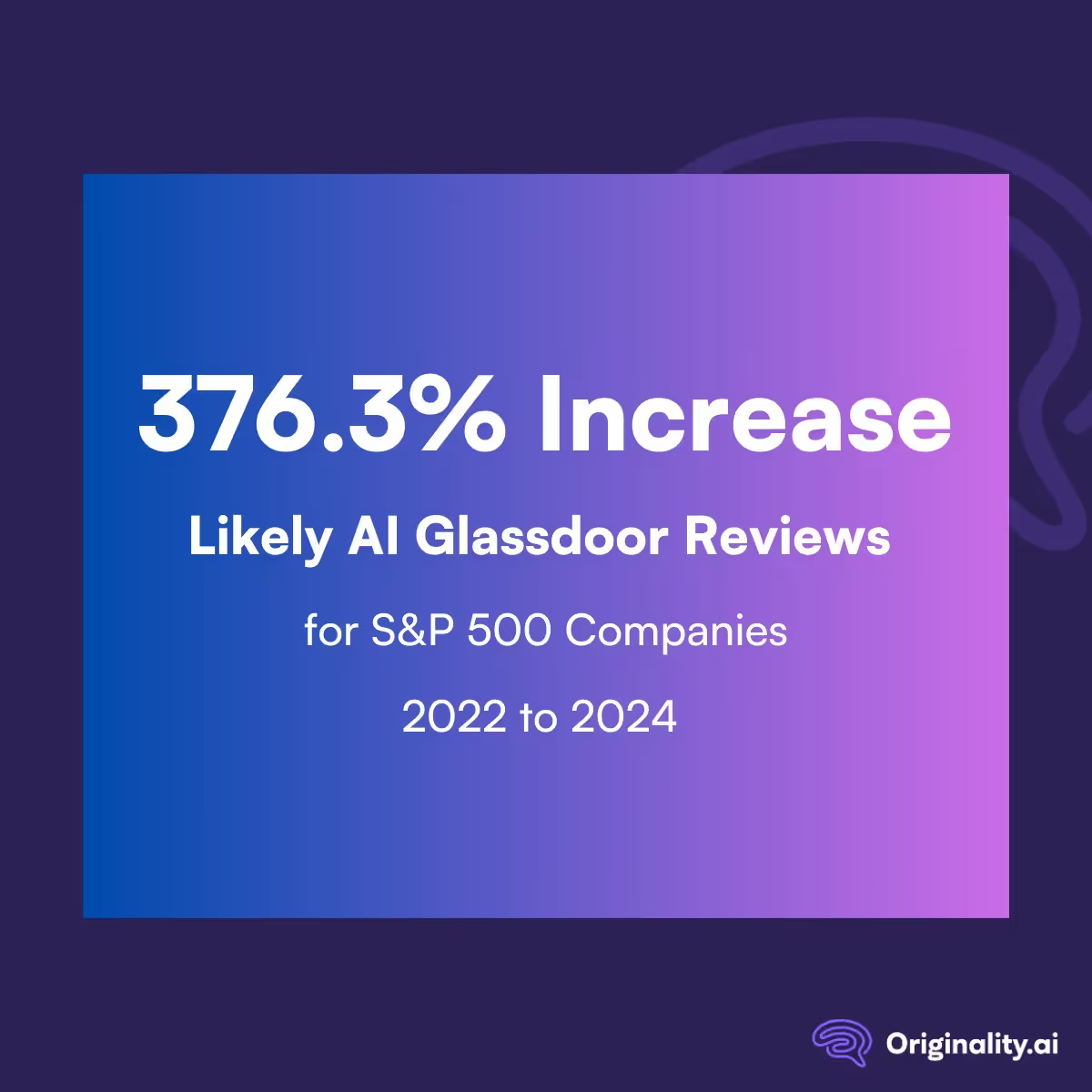Glassdoor is renowned as one of the best platforms to visit to better understand what it’s like to work for some of the biggest and best companies in the world.
Of course, if you ask a company directly, they may give you an answer that suits their brand image. But, if you head to Glassdoor, you can see human-written reviews from real-world employees.
Or can you?
Considering the impact of AI on previous platforms we’ve studied, such as Reddit, Quora, and Zillow, in our most recent study, we dived deeper into Glassdoor reviews from 2022 to 2024 to see what impact AI content usage had.


In our study, we uncovered that in 2024, likely AI reviews contributed by employees for S&P 500 companies on Glassdoor had risen to 29.45%.
While this means that the majority of reviews remain human-written (70.55%), the fact that 29.45% of Glassdoor reviews are likely AI is significant and raises concerns for Glassdoor’s audience.
As with other review sites, the increase in AI-generated content is likely due to the increasing awareness of AI capabilities and company awareness of the importance of five-star reviews.
Given the volume of AI-generated reviews is increasing year-on-year, if it continues to rise, users may start to move away from Glassdoor in search of another platform that offers human insights.

One of the most notable insights that came from our study was the year-on-year rise in AI-generated reviews on Glassdoor.
Comparing year on year, you can clearly see a significant increase in AI-generated reviews at S&P 500 companies, accelerating between 2022 and 2024.

From a user perspective, knowing how many Glassdoor reviews are likely AI-generated may deter some from using the platform, as they may no longer trust what is being written
Instead, they may look for other alternatives where they are confident that what they are reading was written by an employee of their chosen company.
From Glassdoor’s perspective, if generative AI reviews are left unchecked, this could result in a traffic drop if consumer behavior shifts in favor of platforms sharing human-written reviews.
That could lead to fewer businesses curating or creating Glassdoor pages, more AI-generated reviews, and raise substantial concerns for users looking to hear employee perspectives.
Not to mention the impact a large volume of AI content could have on Glassdoor search rankings, as Google has shown it will penalize sites that publish AI content that doesn’t comply with spam policies (Read more in our study on Google AI Content Penalties).
In summary, if AI-generated reviews continue to rise within S&P 500 companies and beyond, Glassdoor may experience a drop in user trust.
Review sites like Glassdoor are built primarily on human-to-human interaction, with users heading to the website specifically to see what other humans think about working at a specific company.
So if those human interactions are instead replaced by AI-generated reviews, it could have a significant negative impact on the user experience.
As more people become comfortable using AI tools, it is crucial for websites like Glassdoor to ensure that they are being used responsibly.
Are you unsure if a review or post you’re reading is human-written or AI-generated? Use the Originality.ai AI detector to find out.
Read more about the impact of AI on online platforms:
This study aggregated Glassdoor reviews from S&P 500 companies, our primary focus, was on the textual feedback sections — specifically the “Pros” portion of each review — since it often contains a detailed description of positive experiences or workplace benefits.
We used Originality.ai to assess the likelihood of AI text, submitting "Pros" fields over 50 words for analysis. The API provided an AI-likelihood score and binary classification (AI-generated or not). We stored both the original reviews and AI results in a CSV file.
Error handling was included to ensure reliable data collection. The final dataset enabled us to analyze patterns and correlations, supporting further investigation into AI-generated content in employee reviews.

According to the 2024 study, “Students are using large language models and AI detectors can often detect their use,” Originality.ai is highly effective at identifying AI-generated and AI-modified text.